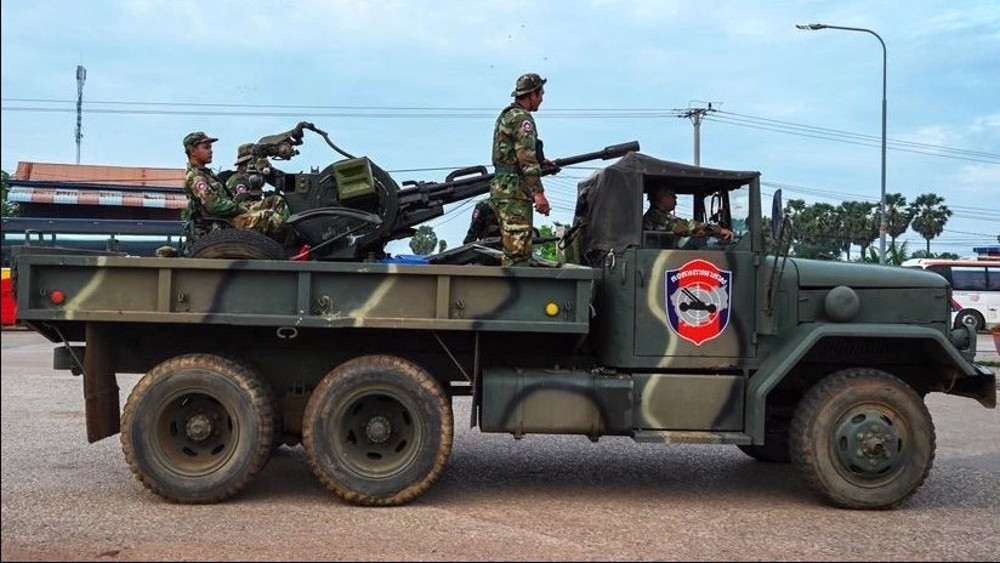NATO’s eastward expansion US agenda: Activist
Press TV has interviewed Eric Draitser, founder of stopimperialism.com in Beirut, to discuss NATO’s plan to deploy more forces near Russia’s borders in Eastern Europe.
The following is a rough transcription of the interview.
Press TV: Many people are calling this Cold War 2.0. How do you feel about this?
Draitser: Certainly this is part of what the United States and the NATO allies have been doing since the end of the Soviet Union. The eastward expansion of NATO, the encompassing of the former Soviet space in Eastern Europe, this has been part of the broader agenda by the United States to project its power against what it perceives as a threat in Russia.
We have seen this of course quite recently in Ukraine. This is in fact the very heart of the conflict over Ukraine, why the United States and the European powers had supported the so-called Association Agreement trying to pry Ukraine out of the Russian sphere of influence and into the European one. In fact we see the deployment of troops all over in Eastern Europe in the Baltic States - Lithuania, Latvia, Estonia - we see Poland warmongering against Russia over the course of the last two years and actually from many years before that as well. We see increasing tensions all throughout Eastern Europe primarily because the United States now sees a resurgent Russia on the global scene and understands that its power in Eastern Europe is weakening.
So what the United States and its NATO allies want to do is to project their power and one of the ways they do that is through these so-called troop deployments and also through military exercises. We see military exercises in the Black Sea. We see military exercises in Romania, in Bulgaria, all throughout that region and all throughout Eastern Europe. This is all part of the same strategic push.
Press TV: It seems at least the US is trying to be careful about the details here because according to Russia-NATO Founding Act no stationary such force could be based, so they have rotated these bases now and saying that that is going to be okay then, but Russia is not playing ball, obviously Russia will say it does not matter if these armed brigades will be rotated or not. How important are such details? Going forward, does it show that the US in a sense is afraid of a Russian reaction?
Draitser: I do not think they are necessarily afraid of a Russian reaction. I think that part of the US strategy here is to try to provoke a Russian reaction. They want to see Russia increasing its military capacity, Russia increasing its forces so that then the propaganda machine can be ramped up to say, ‘you see Russia is an aggressor, Russia is expanding, Russia is doing this and that’. This is what we have seen in fact even from the very statements out of the State Department, which has said quite openly that “Russia is encroaching on NATO’s borders,” which is obviously an inversion of reality.
We have seen the same thing with the United States going back to the previous administration under George W. Bush and the so-called strategic missile shield which was in fact of course an offensive missile system directed at Russia. I think universally this was recognized outside of the halls of power in Washington and this is really the push and pull game that we see all throughout Eastern Europe where the United States wants to undermine Russia in places like Georgia, where it instigated its quasi-NATO proxy of the Republic of Georgia to wage war against Russian civilians and against Russia in 2008. We saw this in Ukraine just in 2014 and the continuation of that today.
This is really I think the fundamental conflict in Eastern Europe right now precisely at the moment that these same countries in Eastern Europe begin to question the validity and the promised future of the European Union. So there is a number of political, economic and geopolitical strategic considerations which I think really come together to create the broader picture in Eastern Europe.
Trump warns UK against enhancing China ties as PM Starmer hails reset
VIDEO | Press TV's news headlines
Iran rejects threats, backs win-win diplomacy, Pezeshkian tells Erdogan
VIDEO | Disabled Iranian woman dies in German custody
VIDEO | Iranian students voice anger at French govt. for hostile policies
VIDEO | EU appears indifferent about Trump's illegal war threats on Iran
Iran FM in Ankara for ‘closer consultations’ on ‘serious’ regional situation
Iranian officials: EU will regret 'servitude to US' over IRGC designation














 This makes it easy to access the Press TV website
This makes it easy to access the Press TV website